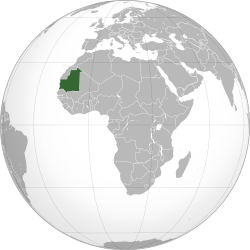Malians Seek Refuge In Mauritania
By Magharebia
By Bakari Guèye
Thousands of Malians have fled the bloody conflict in the north of the country to safe havens in Mauritania. But many displaced Malians face disease risks and serious shortages.
According to UN High Commissioner for Refugees Antonio Guterres, the situation is critical. Speaking on Wednesday (August 1st), Guterres pleaded with the international community to help provide funds to help the Malians.

There are “more than 108,000 Malian refugees in the M’berra refugee camp” in the south of Mauritania along the border with Mali, the International Committee of the Red Cross (ICRC) stated on July 27th.
A team from the Mauritanian Red Crescent and the ICRC in late July distributed essential non-food items in the camp. Distribution lasted one week, ending on July 25th, according to the ICRC.
Some 72,000 people received household and hygiene items (blankets, mats, mosquito nets and cooking kits). The ICRC also identified several thousand families living without a roof over their heads. The families will be supplied with waterproof tarpaulins.
The Mauritanian Red Crescent, operating through the local branch in Bassiknou, has been working for several weeks to meet the needs of the displaced population.
There is “a risk that epidemics such as malaria and cholera could emerge in the Touareg refugee camps in Mauritania, which currently hold more than 300,000 people who have fled their country in the wake of the conflict between the Malian army and fighters from the MNLA (the National Movement for the Liberation of Azawad) and Ansar al-Din,” Médecins sans Frontières (MSF) warned on June 28th.
“The organisation’s doctors are treating a number of cases of diarrhoea and malaria in the camps,” MSF emergency co-ordinator Marie Christine Ferrero said in a statement distributed by the organisation. “The most common ailments are inflammations of the lungs. Such illnesses are due in the majority of cases to the difficult living conditions faced by the refugees in the camps.”
In order to protect the children living in the camps, “10,000 of them have been vaccinated against measles since March”, she added.
The start of the rainy season “increases the risk that epidemics could emerge in these refugee camps”, according to Ferrero.
“Among those involved in the international humanitarian work in the fields of health, education, food and drinking water supplies, we could mention major organisations such as the World Food Programme (WFP), which has contributed a large quantity of food and tents alongside the UNHCR,” said Mohamed Mahmoud Sidi, head of the Organisation for the Assistance of Sick and Needy Children (OAEMSD), one of the first NGOs to work in the Malian refugee camps.
While international aid organisations have poured in resources to help the refugees, the aid is still not enough.
“The biggest losers in the fight for Azawad’s independence are without a doubt the civil population of Azawad, who have been displaced within or outside of Azawad, but also the many civilian and military victims who have been executed by the Malian army in total silence,” analyst Khado Ag Ghousmane said. “That silence, which hurts all of us, is due in part to what looks like the resignation of Moussa Ag Acharatoumane, the MNLA’s Human Rights officer.”
“It must come to an end, which is in the interest of both the MNLA and the Azawad population,” he said.
